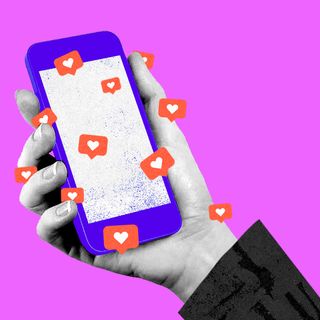
Is This Normal? ‘I Feel Guilty For Enjoying My Time Off Work’
Perfectionist tendencies can further amplify the impact of societal pressures that induce a fear of falling behind.

In this series, we dig into our strange phobias, fixations, and neuroses, and ask ourselves — Is This Normal?
There are times when I feel guilty for taking — let alone enjoying — any time off work. I may be sipping my favorite cocktail at a beach shack, watching endless waves crash into one another, basking in the glory of a well-deserved vacation, when I encounter that vexing sense of guilt creeping up on me, raining on my parade and whispering in my ear: “You should be hustling! Look at all those productive people working their a**es off while you sit here, marinating in your inertia!” This is followed by a fear of judgment that comes crashing like a rogue wave, prompting me to worry whether my colleagues think I’m slacking off and superiors at my workplace construing my approved absence as a lack of work ethics, on my part. The guilt, in essence, makes me second-guess my decision to indulge in some precious — and, need I mention, crucial — downtime. And soon enough, this tussle between relaxation and guilt takes over my holiday, robbing me of the pleasure of being able to enjoy the long-overdue break I earned.
Is this normal? Apparently, for those of us attempting to navigate our careers in a culture that worships The Hustle, it has become the norm. So much so that some publications have dubbed it as the “latest workplace epidemic,” going on to even christen the phenomenon as “vacation guilt.”
Research suggests that a vast chunk of the working population not only feels guilty about taking leaves to go on holidays, but also about taking sick-days — even if they’re confined to their beds with illness. Interestingly, Indians are among the worst affected in the world when it comes to experiencing vacation guilt. Studies have found that 75% of Indians felt vacation-deprived, and up to 40% of Indians felt anxious to apply for leaves at work. In a world where we are conditioned to tie our self-worth to our jobs, the statistics are hardly surprising. When one’s work becomes the center of their very identity, disconnecting from it can trigger a sense of purposelessness and a crisis of identity — causing one to subconsciously feel guilty for having subjected themselves to the spiral of negativity they are hurtling down at breakneck speed.
“[Guilt] comes from the internalized voices, from our parents, from our family growing up,” Amelia Aldao, a therapist, told NPR. “[G]iven that we have such high expectations about our productivity, it would make sense that we would feel guilty when we don’t meet them or when we feel like we haven’t met them.”
Related on The Swaddle:
Workplace Burnout Can Damage Confidence, Relationships for Years
Perfectionist tendencies can further amplify the impact of societal pressures that induce a fear of falling behind, which can be combated only through constant productivity. A perfectionist tends to set exceedingly high standards for themselves — driven by an overwhelming fear of being perceived as incompetent. This translates into a relentless urge to prove one’s worth through overachieving, manifesting as a mindset that views leisure as lazy. Making matters worse are Indian “child-rearing practices,” which have already been criticized for cultivating perfectionism on the basis of socially perceived notions and demands. “Perfectionism is neither healthy, positive, adaptive, or functional. Rather it is a serious issue that can cause profound psychological harm. There is no pill that can treat perfectionism,” says Martin Smith, a lecturer at the York St. John University, who researches perfectionism.
Perhaps, the vacation guilt I experience, then, stems from my ADHD, which is known to trigger a perfectionist attitude. My neurodivergence — largely informed by my autism, too — also causes me to get caught in a black-and-white thinking style rather often. This means that if I’m conditioned to place productivity, efficiency, and a constant pursuit of success above all else — including my personal wellbeing — I struggle to come to terms with needing breaks. As a result, I have a history of pushing myself to the point of experiencing burnouts, meltdowns, and shutdowns — and somehow, come out feeling guilty for not working when my disability literally prevented me from being able to work.
My autism also makes it challenging for me to cope with changes in routine. And vacations, by definition, involve deviating from familiar, established routines, which can evoke anxiety — leaving me feeling distressed due to the changes, and angry at myself for the choices I made. While I’m in the process of scrambling to rationalize my anger, the guilt of not conforming to the structures I rely on to get through life rears its head, and soon, devolves into catastrophizing about my time-off been perceived as a lack of dedication or commitment to my job, potentially harming my professional image.
To that extent, the experience of navigating a neurotypical-oriented society as a neurodivergent person, too, can be instrumental in breeding this guilt. The ableism one encounters as a result of living with invisible disabilities can often put them at the receiving end of criticism that implies they’re lazy, inefficient, careless, unprofessional, uninspired… what have you. Over time, they normalize the unrealistic expectation of not letting their disability impact their work, and begin to internalize the insults meted out to them when they repeatedly — and, naturally — fail to meet the unfair expectations. This internalization, however, presents as guilt every time they attempt to take a break.
Related on The Swaddle:
What is ‘Office Housework’ and Why Are Women Mostly In Charge of It?
From a sociological perspective, the leading contributor to vacation guilt is hustle culture, which teaches us to determine people’s worth on the basis of the number of hours they devote to their careers, despite studies linking long working hours to depression and anxiety, rises in stress levels, and ultimately workplace burnouts that, ironically, hurt one’s productivity. “One common perception… that time off needs to be earned, deserved, and sacrificed for. Rather than seeing it like a preventative, beneficial ‘vitamin’ we take regularly, we see it a little more like a ‘painkiller,’ taken as a result of grinding hard,” Selena Rezvani, a leadership speaker and author, wrote in an article. “Yes, dedication and hard work are things to be proud of, but studies show when we take time off regularly, we have better health, stamina and engagement at work. And we actually perform better and work harder.”
This is precisely why the guilt is counterproductive (no pun intended) — by interfering with our downtime, it prevents us from getting back to work refreshed and rejuvenated, thereby getting in the way of performing as well at work as we otherwise would have.
Mental health conditions — like depression and anxiety, both of which I live with — are also associated with feelings of inadequacy and worthlessness, which can intensify vacation guilt as one engages in self-blame.
The guilt surrounding downtimes is gendered, too. “For women, in particular, it’s often difficult to shake the anxiety that comes with enjoying time with your family on vacation or taking a long weekend to ‘do you’… [W]omen feel they must prove themselves for leaders to see them as competent. No wonder it’s hard to step away from work when your commitment and competence are openly questioned,” Rezvani notes. “Women already do back flips to work hard for their boss’ approval and fair compensation; we shouldn’t also feel the need to convince ourselves that we deserve to take time off. The real responsibility is on employers to make women feel empowered and supported at work, whether we’re on or off the clock. That means destigmatizing use of vacation and sick time and encouraging leaders and managers to ‘leave loudly — whether it’s at the end of the workday or for a weeklong vacation where they fully unplug.”
All of these social and psychological factors unite, manifesting as vacation guilt — much like the powers of earth, fire, wind, water, and heart combining to create Captain Planet — and leaving me torn between the desire to rest and the urge to address guilt that accompanies the said desire. But hey, maybe, I can draw solace from the fact that, in this capitalist world, I’m not alone in feeling this way? That is making me feel hopeless, though. I guess I have to choose between guilt and hopelessness. What would your poison be?
Devrupa Rakshit is an Associate Editor at The Swaddle. She is a lawyer by education, a poet by accident, a painter by shaukh, and autistic by birth. You can find her on Instagram @devruparakshit.
Related


The Fictional Objects That Can Make the World Better
